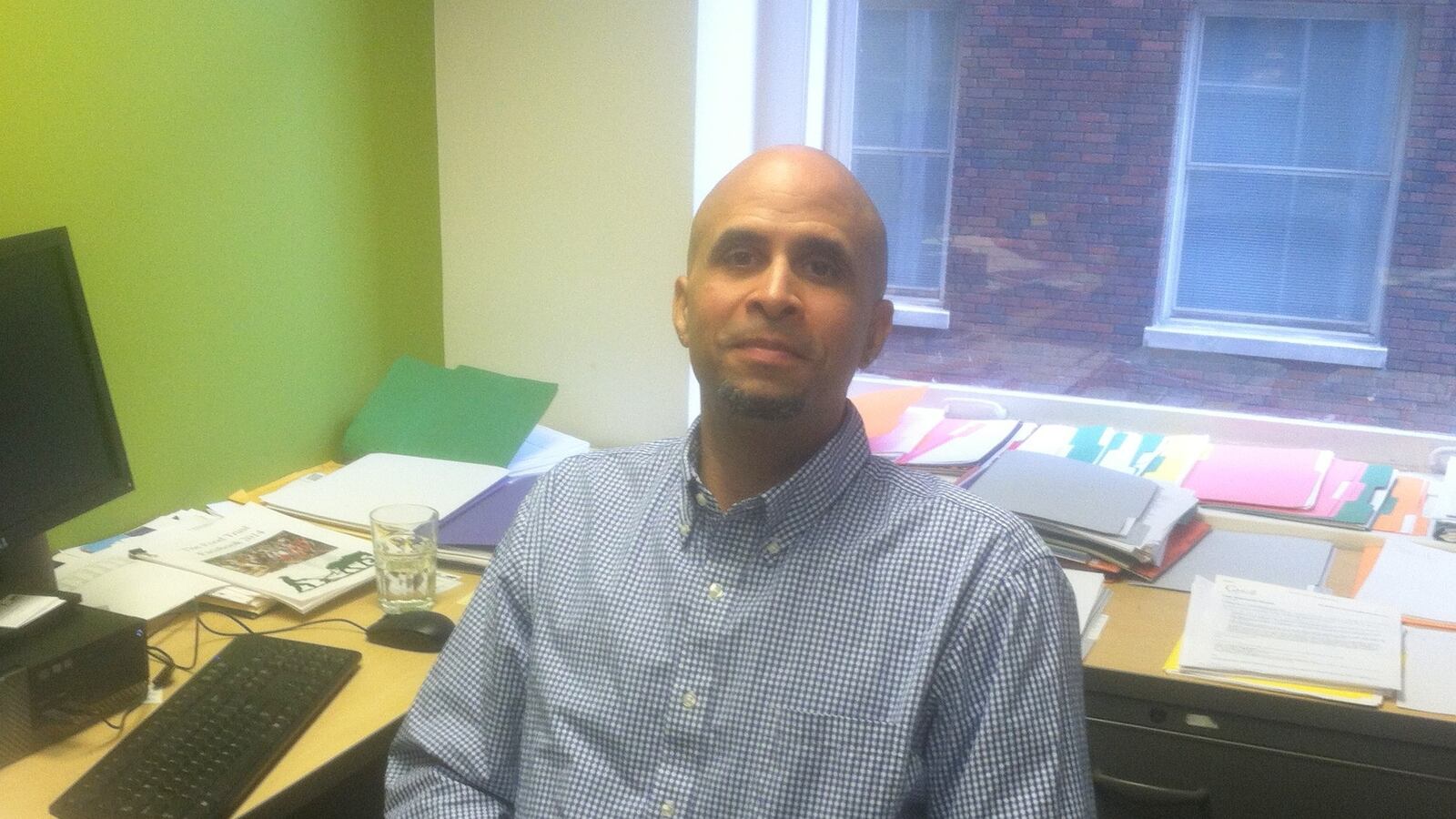This article was originally published in The Notebook. In August 2020, The Notebook became Chalkbeat Philadelphia.
When he first moved to Philadelphia for Temple University’s Urban Anthropology Ph.D. program in 1996, Notebook member Bill McKinney said he felt like it was home, similar in a lot of ways to where he grew up in Cleveland, Ohio.
Now 18 years later, McKinney, who lives in Kensington, is dedicated to helping the youth of Philadelphia and aiding emerging nonprofits as a dedicated employee, volunteer, and mentor. He said the Notebook has been a valuable resource for him when it comes to providing him the kinds of content he needs to fit his many roles.
“The Notebook really became a way for me to get more information than is just going to be in the newspapers and have a story here or there,” he said. “This was going to have more in-depth stuff and have a lot of details – and I’m a detail-oriented person.”
As a product of public schools himself, McKinney, 44, said he’s “definitely a public school advocate.” Before getting his doctorate at Temple, he earned an undergraduate degree from Cleveland State University and a master’s in applied anthropology from the University of Maryland. McKinney said he began reading the Notebook several years ago because he was interested in learning more about Philadelphia’s public schools.
Though his day job directing research at the Howard Samuels Center in the City University of New York’s Graduate Center took him outside the community, he stayed connected through his work with community-based organizations and as a mentor to three Philadelphia middle school students. Those students, McKinney said, have either graduated from high school or will be graduating this school year.
As a mentor, keeping up to date on news that affected students was crucial. McKinney said that the Notebook provided needed resources for him.
“The School District is complicated,” he said. “I think for someone like myself, who doesn’t have kids – so I don’t have the direct access to the schools like a parent would, but at the same time I’m trying to affect the lives of some young people who are directly in contact with the schools – [the Notebook] just becomes a really valuable tool.”
McKinney, who now works as the director of research and evaluation for The Food Trust, said he decided to start contributing to the Notebook as a member because the publication had provided a service for him, and he felt it was important to support the publication’s efforts.
For the past five or six years, McKinney’s work with community-based groups has been focused on working with “truly” emergent nonprofits, an area that he said has always interested him. He developed a model to better support them, and this model will run as a pilot for several organizations this winter.
“I’ve had my own difficulties in life, and I’m grateful for the opportunities I’ve had,” McKinney said. “A lot of other folks haven’t had the chances that I’ve had, so I think it’s really important that I don’t just take what I’ve been given – and that I’ve had to work for – and just do for myself.”
McKinney said that he enjoys the Notebook’s print editions and stressed their importance for people who can’t access the Internet. He also values the website, saying he immediately goes to the Notebook for current events stories because the information “is more in-depth.” McKinney recalled relying heavily on the Notebook when he chaired a School Reform Commission task force on dropouts a few years ago.
As more and more upheaval continues to affect Philadelphia’s schools, McKinney said everyone in the city needs to be in touch with what’s going on, and what’s in the Notebook makes events more predictable.
“I think it’s a good publication. Not every city has it,” McKinney said.
“There’s nowhere else to get that level of information.”
To join the Notebook or for more information on membership, go here.

